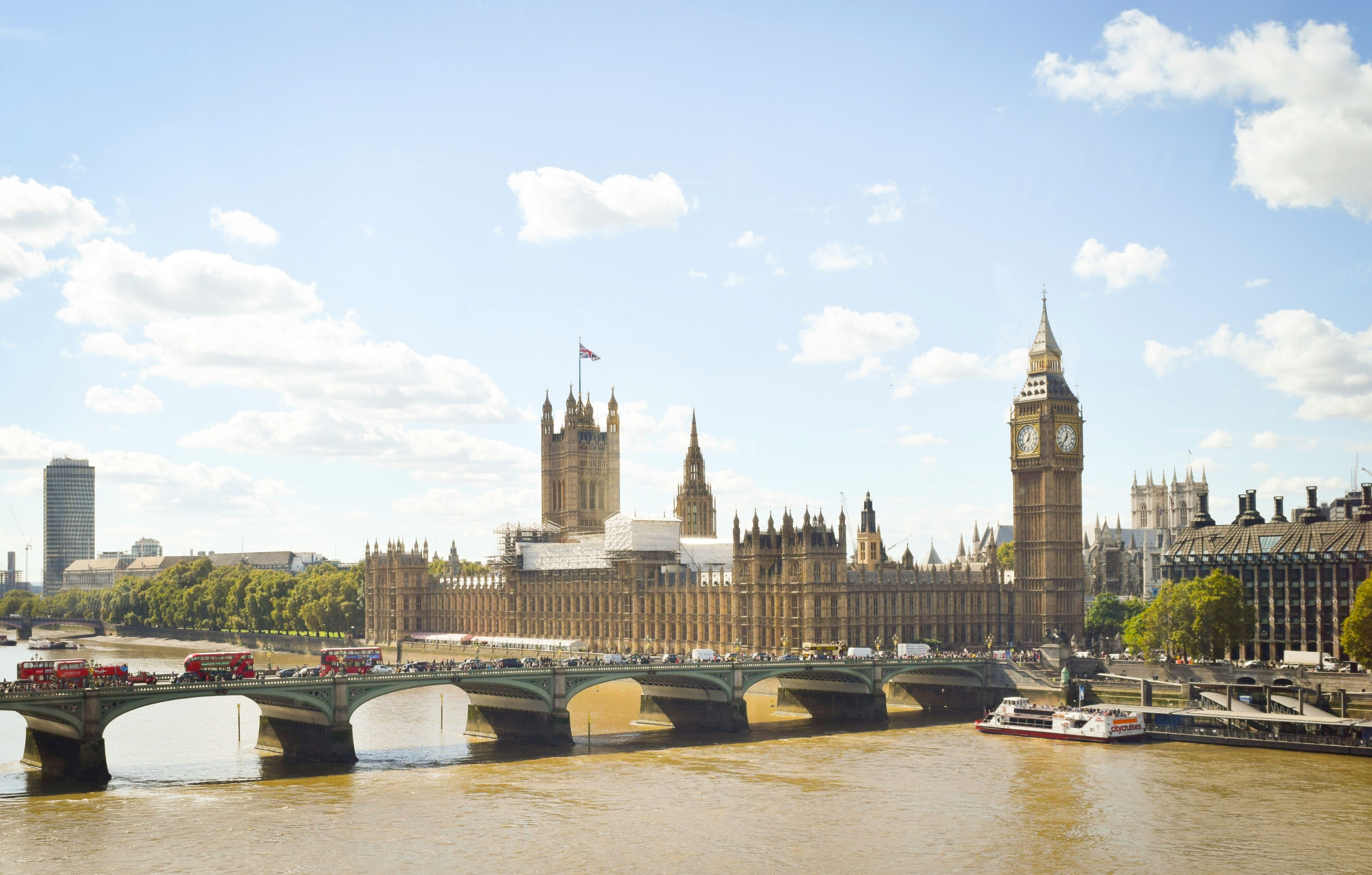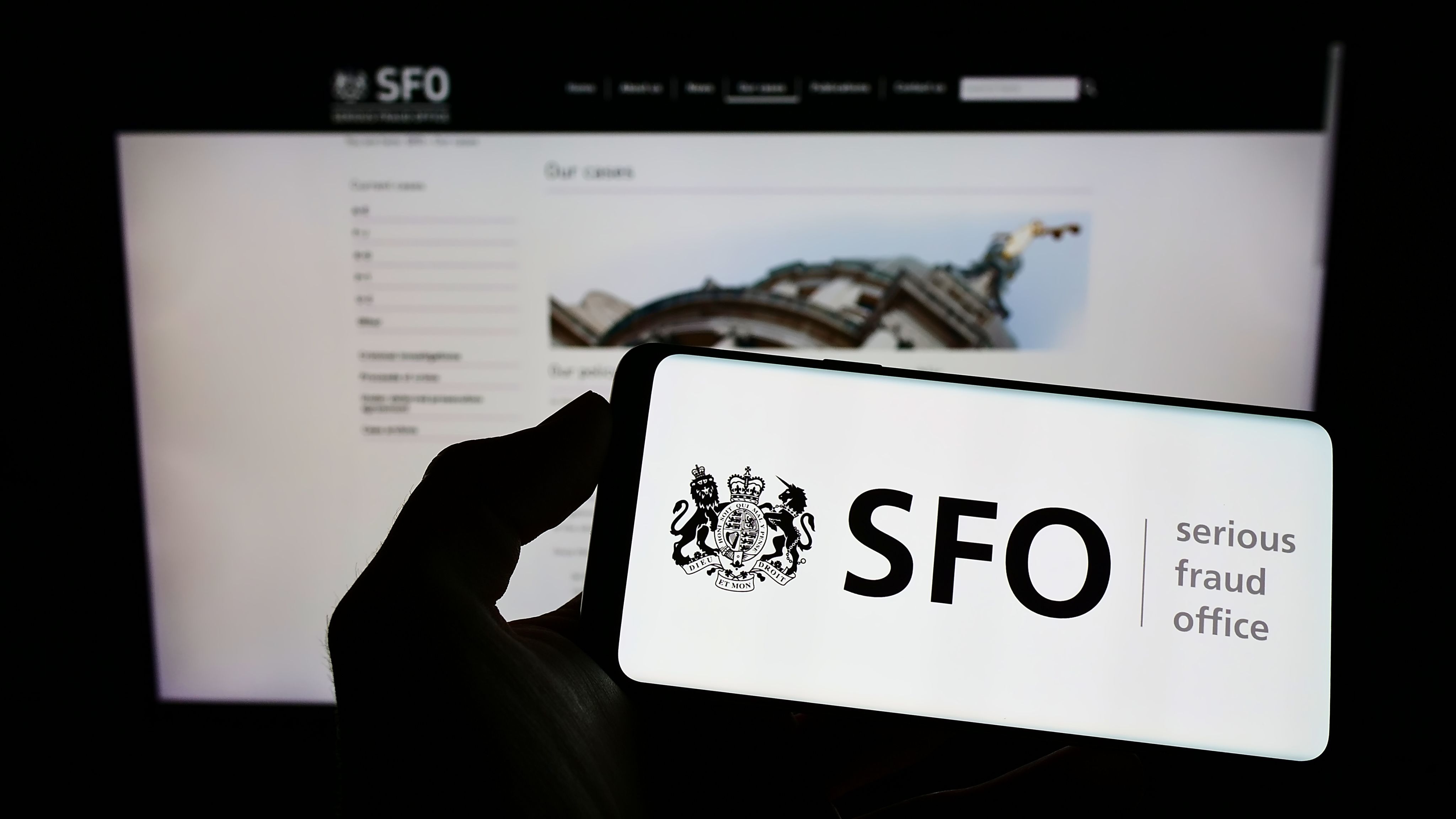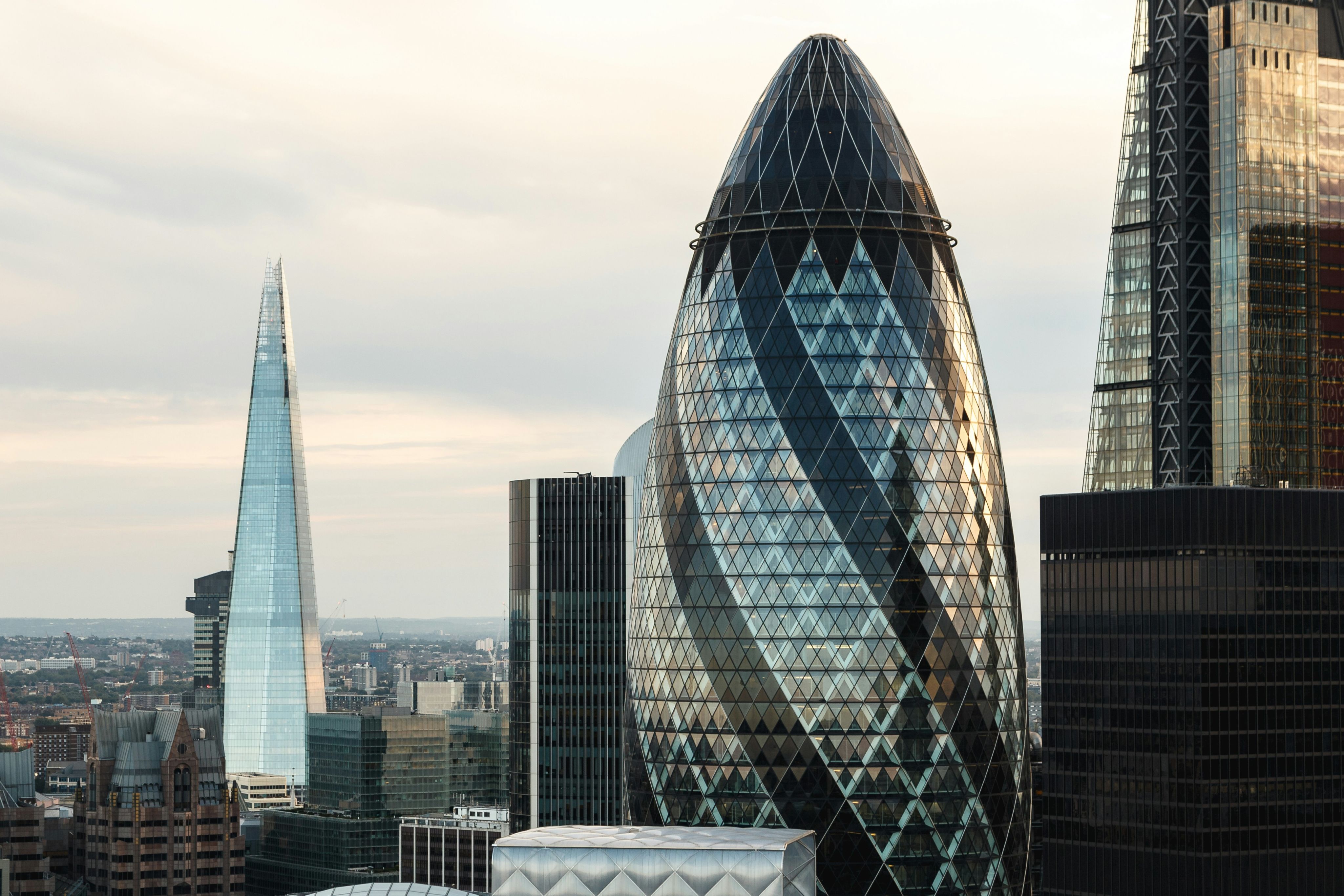Looking ahead as UK election looms large
Looking ahead as UK election looms large
With the UK gearing up for election day on 4 July, MLex journalists share critical insights on the future of regulation across AI and technology, online safety, mobility and green energy, financial crime and financial services:
AI worries not a headline issue for UK voters, but lawmakers are feeling pressure to act
By Jakub Krupa and Frank Hersey
'Ill-equipped' tech regulators and AI legislation on agenda for UK's Labour party
By Jakub Krupa
Social media, online safety among policy ambitions in UK Conservative party's manifesto
By Jakub Krupa
UK phaseout of new gasoline, diesel cars restored to 2030 under Labour plans for green energy
By Jakub Krupa
UK fraud fight looks stagnant whichever party wins power next month
By Martin Coyle
Tech companies to be a focus of new UK fraud strategy, Labour pledges in election manifesto
By Martin Coyle
UK financial services offered little new policy in ruling Conservatives' election manifesto
By Sofia Gerace and Phoebe Seers
UK banks would see mandatory climate transition plans under a Labour administration
By Sofia Gerace and Phoebe Seers
Keep scrolling for the stories, or start your 14-day free trial now for real-time access to our exclusive news and deep-dive analysis.

AI worries not a headline issue for UK voters, but lawmakers are feeling pressure to act
17 June 2024
By Jakub Krupa and Frank Hersey
Political parties' manifestos usually contain an optimistic shopping list of policies they think will be popular and will get them elected. And the rival UK parties' offerings for national elections next month follow the pattern.
So the near total lack of mention for artificial intelligence shows that any discussion on how to rein in the emerging technology is — at least for now — not a vote winner as people only start to grapple with its implications for their everyday lives.
The Labour party — widely expected to win power from the July 4 vote — simply said it would “ensure industrial strategy supports the development of the AI sector.”
The incumbent Conservative Party paid lip service with a sweeping statement that AI “will accelerate human progress” just as the steam engine and electricity did in the 19th century. It tried to reassure its voters that the UK is “already leading global work on AI safety.” Nothing to worry about.
Even the Liberal Democrats — which crammed their program with digital policies — mentioned AI only three times, pledging they would “make the UK a world leader in ethical, inclusive” use of the new tools, even mentioning a need for regulatory reform to “promote innovation while creating certainty” and ensuring “transparency and accountability.” How, exactly, is hard to say.
Underlying fears
While the emergence of AI may not top the list of voters’ concerns, it emerges as a big worry when they’re prompted to think about it. Two-thirds actively say it is an important part of public policy and that government will have to be particularly active in the coming years.
But despite the bullish rhetoric from AI developers and tech evangelists, recent YouGov polls showed that only one in five UK consumers see AI as a force for good, while a third of the public is concerned about its negative influence.
Almost six in ten feel the government's policy goal should be to slow down, not accelerate, increases in AI capability. Even more say it should be treated as “an incredibly powerful and dangerous technology,” prevented from reaching the much-promised “superhuman” capabilities.
In some areas, Britons are open to experimenting, particularly in healthcare, IT and manufacturing, as companies chase the dreams of AI-packed diagnostic wearables or automated assistants helping doctors make the best decisions or not miss a red flag. But the appetite to take risks is much lower in education, finance or legal services, with a majority saying they have a negative view of their use in these industries.
In employment, seven in ten are against employers using AI to make decisions about their workplace — with 77 percent against it for hiring people and 86 percent against it for firing them. This sentiment reveals why trade unions — unexpectedly — try to shape early discussions about regulating AI.
Regulate, stupid
While politicians enthuse about AI opportunities, the public appears more concerned about them creating the controls and safeguards for AI deployment.
This deeply-rooted skepticism — perhaps fueled by the frustration with the rise of Big Tech giants, from online harms and children's safety to electoral interference, which all attracted headlines and focused minds over the last decade — will affect public expectations of any future government.
In a poll run by YouGov for the Control AI campaign, 71 percent backed regulations on model creation, with a very rare majority across all political, gender and age divides. A similar percentage backs restrictions on how powerful models can become, as well as on safety duties, such as government licensing for large training runs and certification for models before their public deployment.
The UK's next government will have to consider translating some of these issues into legal text quickly as the next legislative plan is set to be announced by mid-July.
Labour, the party most likely to form that government, does appear to be moving in a similar direction as public sentiment.
Putting itself at odds with the current government's relaxed approach, which focuses on asking existing regulators to do more, the party has pledged to bring forward legislation moving from a voluntary code to a statutory system for some of the most potent models, forcing them to release safety test data.
It is not exactly a radical step, as the government had previously indicated that it would do so anyway if “not sufficiently confident that voluntary measures” work, and MLex understands that officials have already started drafting such rules.
Labour’s declaration is much more unequivocal, however, and sends a clear signal to businesses: Brace, it’s happening.
Still, a prominent liberal lawmaker, Tim Clement-Jones, cautioned at an event* last week that a switch from voluntary to statutory codes gives companies too much leeway. “The conduct you should be engaged in is adopting standards for these. So why not cut to the chase and say these standards need to be adopted?”
Practical questions
Further down the line, there are three possibilities: Create a new regulator of regulators, upgrade the existing data watchdog, or create an entirely new authority in charge of AI.
Labour says it intends to create a new Regulatory Innovation Office to “bring together existing functions across government” and review legislation. This body — an enhanced version of the Digital Regulation Cooperation Forum, or DRCF, which coordinates existing regulators on AI within their remits — could also lead in regulating AI. This is the most likely scenario.
Some lawmakers feel this role should fall into an existing body, however. Clement-Jones suggested last week that the task could go to the Information Commissioner's Office, the privacy watchdog, which he branded "the obvious place for the UK regulator."
He stressed that the ICO had the necessary experience working with other international authorities on privacy enforcement, urgently needed when rival economies, not only in Europe but globally, will look to agree on standards.
Conservative lawmaker Christopher Holmes proposed a bill last November that envisaged a new AI regulator in charge labelling of AI systems so that people know when they’re engaging with the technology, plus more clarity on contentious intellectual property issues.
It gained some early traction but was doomed by parliament being dissolved for the election. Holmes pledged last week* to try to revive it in the next parliament if successful in an obscure ballot procedure allocating time to private bills.
“The [current] government's position is still wait and see,” Holmes said, “What will we know, in terms of consumer protection and IP protection and copyright protection ... in a year's time that we don't know now?” But there is a growing realization, he said, that waiting is “not the way to protect and enable innovation to drive inward investment” and it will in fact push “businesses and organizations towards EU AI Act alignment.”
The Labour Party acknowledged there was “consensus about the need for some kind of AI regulation,” while unsure about “the purpose, form and extent.” Holmes’ proposed approach could end up feeding into the next government's plan, even as the political balance in the next legislature shifts to the left.
AI regulation may not be quite a vote winner yet, but it is increasingly clear that the electorate will require action as they see more and more day-to-day examples of the technology changing the world around them.
The first signs of this policy shift are there — even if, like the technology itself, they are very much in an experimental trial phase.
* "The AI Summit London," London, June 12-13, 2024.

'Ill-equipped' tech regulators and AI legislation on agenda for UK's Labour party
13 June 2024
By Jakub Krupa
UK regulators are "ill-equipped" to handle fast-evolving new technologies and will face closer scrutiny and coordination through a new Regulatory Innovation Office under plans confirmed by the Labour Party today.
The opposition party, on course to beat the incumbent Conservative party in parliamentary elections on July 4, published its manifesto today, giving a number of indications as to its policies and direction.
In a passage focusing on the regulatory environment, it said it would support regulators seen as "currently ill-equipped to deal with the dramatic development of new technologies, which often cut across traditional industries and sectors."
A Labour government would push forward with plans outlined in March for a centralized coordination body — with the working title of a Regulatory Innovation Office — to "help regulators update regulation, speed up approval timelines, and co-ordinate issues that span existing boundaries."
The office would likely build on the success of the cross-government Digital Regulation Cooperation Forum, which brings together the competition, data protection, telecom and financial watchdogs.
In March, Labour's spokesperson for science, innovation and technology, Peter Kyle, explained that the new "regulators' regulator" would set targets for decisions and see enforcers' performance marked against international counterparts.
Artificial intelligence
Labour also confirmed a previous pledge to introduce legislation on artificial intelligence to "ensure the safe development and use of AI models by introducing binding regulation on the handful of companies developing the most powerful AI models."
Earlier this week, Kyle said the initiative would amount to moving from voluntary codes of practice by putting them into legislation so “new entrants to this market know that there is legislative foundation” in place.
This language is in distinct contrast to the Conservative party's more light-touch approach to regulating AI, with existing watchdogs given new powers to look at the technology's application in their areas of interest, but no new overarching laws. Prime Minister Rishi Sunak repeatedly rejected calls for legislation, such as the EU's AI Act, arguing that it would stifle innovation.
Today's manifesto also confirmed plans to remove planning barriers that hampered major investment in data centers and to create a National Data Library, which could see new smart data schemes.
Online safety, telecoms, standards diplomacy
Matching the Conservatives' rhetoric on online safety, Labour also promised to tackle "significant harm online, with inappropriate content too easily available" for children.
"Labour will build on the Online Safety Act, bringing forward provisions as quickly as possible, and explore further measures to keep everyone safe online, particularly when using social media," the manifesto said.
Responding to controversy around a number of high-profile teenage deaths linked with the use of social media, it also promised to give coroners "more powers to access information held by technology companies after a child's death."
The party's program also includes a pledge to speed up the rollout of full gigabit and national 5G coverage by 2030, blaming the incumbent Conservative Party for "falling behind other countries."
In a vague passage on trade, the manifesto also included a line that a Labour government would seek to use the country's post-Brexit standing and diplomatic network to "shape emerging regulatory frameworks," while also negotiating new digital trade deals.

Social media, online safety among policy ambitions in UK Conservative party's manifesto
11 June 2024
By Jakub Krupa
Social media platforms would face a push for further UK curbs on access by children under plans published today by the ruling Conservative Party ahead of the July 4 parliamentary election.
The party's manifesto proposes upgrading advice to schools to ban mobile phones to statutory guidance and pledges to investigate further parental controls and age verification measures for social media, building on the Online Safety Act passed last year.
The party, currently trailing in the polls behind the opposition Labour Party, included online safety in its 80-page manifesto while putting aside broader questions about digital regulation, including privacy and artificial intelligence.
The document notes rises in the number of children suffering from mental health issues related to online activity. “Children are spending much more of their time using screens, often unsupervised,” it warned. “Digital technology is a force for good. But as technology develops, we need to respond to the concerns many parents have,” it said.
The party promised to write existing guidance on restricting mobile phone use in schools into legislation, “which will require all schools to operate a ban, as the best schools already do”. Current guidance, published in February, says schools should prohibit the use of mobile phones but gives them autonomy on how. Some may allow phones on the premises but not for use in school hours, including at breaktime.
In a further sign of potential escalation against social media giants such as Meta’s Instagram, ByteDance’s TikTok or Snap, it added that a future Conservative government would “urgently consult on introducing further parental controls over access to social media.”
“We know this is a complex area and we need more effective age verification and parental controls. That’s why we will consult widely to get this right, including developing the necessary technology, in partnership with other countries who are considering similar measures,” the document said.
The government's Online Safety Bill was passed last autumn, intending to make the UK “the safest place in the world to be online.” The regulator, Ofcom, is now consulting on it before early 2025, when new key duties kick in. Its full implementation is expected to take three years.
Despite the recent focus on emerging technologies, including artificial intelligence, the manifesto includes no new proposals in this area nor mention of whether a Conservative government would bring back some planned reforms lost in the pre-election legislative scramble.
Future mobility plans
The Conservatives' manifesto also promised to support the automotive industry on the back of the Advanced Manufacturing Plan, estimated to be worth 4.5 billion pounds ($5.7 billion).
Noting that the industry "faces unprecedented competition from China in the electric vehicles market,” it signaled readiness to step up defense against Chinese subsidies, saying it was “ready to support domestic car manufacturers if there is evidence other countries are breaking global trade rules.”
It also suggested it would press on with its controversial zero-emission vehicle mandate, under which manufacturers must produce an increasing ratio of zero-emission cars and vans each year up to 2030.
"We will support people to choose electric cars by ensuring our charging infrastructure is truly nationwide, including rapid charging and delivering the Zero Emission Vehicle Mandate to support manufacturers to safeguard skilled British jobs," the manifesto said.
Liberal Democrats
The manifesto follows that of the pro-European Liberal Democrats yesterday, calling for a “clear, workable and well-resourced, cross-sectoral regulatory framework for artificial intelligence.”
The party — which could play a role in government in the unlikely scenario that no party wins a clear majority on July 4 — urged to adopt new rules to provide “certainty for AI users, developers, and investors,” with additional “transparency and accountability for AI systems in the public sector.”
In a sign that the party could support a revised version of the Data Protection and Digital Information bill, the Liberal Democrats also endorsed some changes covering the crossover between privacy and AI to ensure the use of personal data is “unbiased, transparent and accurate.”
They also proposed a “legally binding regulatory framework for all forms of biometric surveillance” and a Digital Bill of Rights that would codify online rights.
In an eye-catching announcement — one potentially challenging to fulfill — the party also said it would push for the UK to join the EU-US Trade and Technology Council, a diplomatic discussion forum, and use it to “play a leading role in global AI regulation, and work with international partners in agreeing common standards for AI risk and impact assessment, testing, monitoring, and audit.”
The party’s program also calls for social media platforms to be obliged to “publish reports setting out the action that they have taken to address online abuse against women and girls, and other groups who share a protected characteristic,” building on the Online Safety Act.
Separately, it proposed tripling the Digital Services Tax on social media companies — introduced in 2020 — from two to six percent.

UK phaseout of new gasoline, diesel cars restored to 2030 under Labour plans for green energy
13 June 2024
By Jakub Krupa
The automotive industry can expect the phaseout date for the sale of new cars with internal combustion engines to be restored to 2030 under a Labour government, the party has said.
The party, widely expected to win the July 4 parliamentary elections, published its manifesto today. It included a pledge that it would reverse the current Conservative government's decision to push the date back to 2035 as part of a broader plan to support the transition to electric vehicles.
The postponement last year was criticized by some in the industry as only adding to uncertainty and confusion given that the underlying commitment to the "zero emission vehicle mandate" — which forces carmakers to change their production plans — remained unchanged.
In its automotive plan, published late last year, Labour branded the government's changes as "entirely unacceptable" and said ministers "left business entirely in the dark about how the zero emission vehicles mandate will operate until a matter of weeks before it is due to begin, making it impossible for industry to prepare."
"Worse still, the decision to water down the 2030 phaseout of petrol and diesel vehicles is a huge setback for manufacturers who will have spent enormous amounts of money and time on the basis of these targets. Chopping and changing like this in government policy completely undermines the investment prospects for the sector," it argued.
The party pledged at the time to return to the 2030 deadline, underpinning it with a new strategy to support the industry during the transition.
In today's manifesto, Labour said it would move to accelerate the rollout of electric-car charging points, accusing the Conservative government of looking like missing the target of 300,000 public chargers by 2030, and would standardize the information supplied to second-hand buyers on the condition of batteries.
In the automotive plan last year, which is understood to have shaped the final manifesto, it pledged to set "new binding targets," linking them to infrastructure funding — a plan similar to that requested by the UK automotive industry.
Broader energy plans
More broadly, Labour says it wants to make Britain "a clean energy superpower" as it intends to push through the country's commitments to net-zero greenhouse-gas emissions.
In one of the headline-grabbing announcements, it confirmed trailed plans to create a new publicly-owned energy company, Great British Energy, giving it over 8 billion pounds ($10 billion) over the next five years.
Separately, the manifesto also contains a pledge to "ensure a much tougher system of regulation," with energy watchdogs being told to be tougher on companies: "We will strengthen the regulator to ensure it can hold companies to account for wrongdoing, require higher standards of performance, and ensure there is automatic customer compensation for failure."
In an unusual development, the party received a public endorsement for its green plans from the government's former chief scientific adviser, Patrick Vallance, who said in a quote featured in the manifesto that Britain "desperately need[s] to end the era of high energy bills … by accelerating the transition to clean, homegrown energy."
The party intends to invest in onshore wind, solar power and offshore wind energy, bringing new legislation — under the working name of the Energy Independence Act — to help with the transition.
In a departure from the current government's policy, Labour also pledged not to issue new licenses to explore new oil and gas production in the North Sea, but it said it would not revoke existing licenses.
The party also intends to "close the loopholes in the windfall tax on oil and gas companies," as it takes aim at companies "who have benefitted from enormous profits not because of their ingenuity or investment, but because of an energy shock with raised prices for British families." The Energy Profits Levy will be extended until the end of the next parliament in 2029, and increased by three percentage points.
The manifesto also includes a promise to modernize the UK's grid and change the planning regime to help with renovations and new installations.

UK fraud fight looks stagnant whichever party wins power next month
14 June 2024
By Martin Coyle
The major political parties vying for power in the UK this week released their detailed manifestos for the July 4 parliamentary election. But anyone looking for meaningful fighting talk over financial crime will be disappointed.
Labour, which is widely expected to win office, the ruling Conservative Party and the Liberal Democrats, all set out rafts of policies in slick brochures understandably dominated by the economy, tax and immigration issues. There are slim pickings for those hoping for advances in the fight against dirty cash.
Ahead of Labour’s manifesto on Thursday, signs were promising. David Lammy, its foreign affairs spokesman, gave a speech last month promising to pay whistleblowers for uncovering sanctioned entities hiding cash. He referred to “toxic” corruption and money laundering thriving in the UK.
Lammy promised action against professional enablers, such as lawyers and accountants, who help ferret away dirty money for wealthy individuals — words that would have energized campaigners.
But Lammy’s aspirations didn’t make the cut. Labour did promise to revamp the UK’s fraud strategy and involve tech platforms to help them cut down on online fraud. But the existing strategy, published in May last year, already pledges to rope in tech giants in the fight against fraudulent activity.
Labour said it would move to track down billions of pounds in Covid-related funds estimated to have been lost to fraud during the pandemic. Little meaningful action has been taken in recent years in this area, aside from one arrest made this week and an ongoing probe linked to government-linked procurement contracts for personal protective equipment.
Labour also said it would support action to use Russian money frozen by sanctions to help Ukraine recover from war.
The Conservatives look likely to lose power next month. They trail far behind in the polls, and this week at least one poll shows them now in third place, behind the insurgent protest party Reform. The Conservatives’ manifesto was seen as acknowledging this by being more detail-oriented than Labour's. It pledged to strengthen efforts to go after all forms of fraud, but much of the focus appears to be on individuals defrauding the government through wrongful welfare claims.
The manifesto did include a promise to advance efforts to get the UK’s overseas territories and crown dependencies to adopt open registers of beneficial ownership — going further than a Labour pledge to tackle money laundering in these areas.
This has been on the wish list for campaigners for many years and progress has been slow in bringing the islands — such as Jersey, Guernsey and the Isle of Man — up to UK standards.
The Liberal Democrats; the UK’s third main party — at least before the emergence of Reform — has perhaps the least chance of seeing its manifesto realized, but it does have the most to say on financial crime.
It said it would “name and shame” banks with the worst record in preventing fraud and reimbursing victims. It hopes this will chivvy them along in getting their acts together.
The Liberal Democrat party also called for action to seize frozen Russian money and to put a stop to oligarchs funneling dirty cash through the UK. Crucially, it called for more funding to combat wrongdoing by “properly resourcing the National Crime Agency to combat serious and organized crime.”
None of the manifestos mentioned the UK's dedicated white-collar crime prosecutor, the Serious Fraud Office, including raising doubts about the future of the beleaguered agency.
While its head, Nick Ephgrave, may be relieved that the SFO won’t have to relive a 2017 attempt to fold it under the wing of the NCA, it didn't garner publicly expressed support, and it risks being left in the cold. More money would help the SFO take on bigger investigations and increase its lagging success rate for prosecutions. Given a political environment where every penny is scrutinized, this looks unlikely.
In the round, some pledges emerged to up the fight against fraudsters, but don't expect serious progress in enforcement, at least in the short term.

Tech companies to be a focus of new UK fraud strategy, Labour pledges in election manifesto
13 June 2024
By Martin Coyle
A new fraud strategy for the UK that will support vulnerable tech platforms will be introduced by a Labour government if it takes power, the country's main opposition party said as it set out its policies today.
Labour, which is widely tipped to win July 4 parliamentary elections, published its manifesto today, setting out its pledges that include some related to financial crime. It said it would replace the Conservative government’s 2023 fraud strategy for having failed to respond to the scale of the problem.
“Labour will introduce a new expanded fraud strategy to tackle the full range of threats, including online, public-sector and serious fraud. We will work with technology companies to stop their platforms being exploited by fraudsters,” the manifesto said.
The government’s consumer fraud strategy, published in May last year, set out proposals to reduce the crime by 10 per cent by the end of this year. The government introduced plans to make it easier for victims to get their money back and said it would put pressure on tech companies to make their platforms safer for the public.
Fraud is estimated to cost the UK 7 billion pounds ($9 billion) a year, amounting to around 40 per cent of all crimes recorded in the country.
Labour said it would also step up efforts to track down money lost to fraud during the pandemic. “We will appoint a fixed-term Covid Corruption Commissioner and use every means possible to recoup public money lost in pandemic-related fraud and from contracts which have not delivered,” it said today.
Billions of pounds are thought to have been lost to fraudsters during Covid-19 as the government rushed to hand out procurement contracts and provide loans to struggling businesses.
Labour also pledged to tackle money laundering and corruption by working with the UK's international allies.
Last month David Lammy, the party's foreign affairs spokesman, said Labour would pay whistleblowers if they uncovered sanctioned entities that have hidden cash. He also said that professional enablers, such as lawyers and accountants, would face tough action for aiding criminals to hide their cash. Neither suggestion is included in today's manifesto.

UK financial services offered little new policy in ruling Conservatives' election manifesto
11 June 2024
By Sofia Gerace and Phoebe Seers
The UK financial services industry finds little new policy in the Conservative party's manifesto to tempt it to back the ruling party in the upcoming election, although there is a pledge on lending to small and medium-sized businesses.
The manifesto's publication today follows that of the Liberal Democrats yesterday, which promised action on banks' lack of climate action. The Labour party, broadly expected to win power in the July 4 election, is due to release its manifesto on Thursday.
The Conservatives promise to maintain the "highest standards" of prudential regulation "to ensure there can never be a repeat of the banking crisis under the last Labour government."
Its manifesto pledges to ensure that implementing the Basel III capital requirements won't make it difficult for small and medium-sized businesses to borrow money, in response to Prudential Regulation Authority plans to scrap a provision that allows banks to hold less capital against loans to SMEs. Lawmakers are already scrutinizing the PRA's plans, which would make it more costly to lend to small businesses.
There is a promise to build on and embed existing measures that reform Solvency II insurance rules, along with aims to improve outcomes for pension savers, to incentivize companies to grow and list in the UK, and to overhaul the regulatory framework by repealing retained EU law — together the Edinburgh and Mansion House reforms.
"We will build on the policies set out in the Edinburgh Reforms so that the UK continues to be the world’s most innovative and competitive global financial center. We will support the City of London’s position as the leading global market through the implementation of the Mansion House reforms and measures such as a retail sale of NatWest shares," the manifesto reads. "We will intensify our fight to stop money laundering and dirty money."
The 80-page document is silent on cryptoassets, despite Prime Minister Rishi Sunak's 2022 pledge to make the UK a "global hub" for crypto. It is also silent on the Financial Conduct Authority and its plan to "name and shame" companies under investigation, which has riled the industry, as well as the regulator's new, secondary growth and competitiveness objective, which some firms argue isn't being given enough attention.
Lobby groups UK Finance and TheCityUK recently published their wishlists for the next government. UK Finance, which represents around 300 companies, has said it should "augment" the secondary competitiveness objective given to financial services regulators by creating a new "competitiveness champion" within government.
TheCityUK also said that the regulators' secondary competitiveness and growth objective should be closely scrutinized by the next administration.
TheCityUK had also said that the relationship with the EU should be "constructive." In today's manifesto, the Conservative party said it would build on the Trade and Cooperation Agreement between the EU and the UK but won't agree to anything that "would infringe [the UK's] legal sovereignty or involve submission to the Court of Justice of the European Union or dynamic alignment."

UK banks would see mandatory climate transition plans under a Labour administration
13 June 2024
By Sofia Gerace and Phoebe Seers
The UK's Labour party has pledged to make the country “the green finance capital of the world,” and to make banks, asset managers, pension funds and insurers "develop and implement credible transition plans that align with the 1.5 degrees Celsius goal of the Paris Agreement." Labour published its manifesto today, as it attempts to lead the next government after almost 15 years of Conservative administration.
The party said it would ensure a pro-business environment, promising economic stability after what it referred to as the “chaos” of the current administration. For the UK’s financial services sector, Labour said it would prioritize green finance and a “pro-innovation” regulatory framework.
Transition plans are meant to include a company's plan to decarbonize its activities, and these aren't yet mandatory in the UK. However, it was expected that more regulation could come down the line, as the country tries to achieve net-zero by 2050.
“Financial services are one of Britain’s greatest success stories. Labour will create the conditions to support innovation and growth in the sector, through supporting new technology, including Open Banking and Open Finance and ensuring a pro-innovation regulatory framework,” the party said.
The Labour manifesto comes as the Conservative and the Liberal Democrats parties have also made the final pledges ahead of the general election, which will take place on July 4.
The Conservative party offered little new policy concerning financial services, and said instead that it would continue the work initiated under the Financial Services and Markets Act of 2023. The Liberal Democrats had said that the lack of climate action by banks and financial inclusion would be under scrutiny if they were to be elected.
Unable to resist taking a swing at former Prime Minister Liz Truss, the Labour manifesto said the British people were still paying the price of her unfunded fiscal commitments through higher mortgage costs and higher interest payments.
“The Conservatives’ recklessness sent a signal of instability across the world that damaged our standing, making Britain a less attractive place for business to invest.” Labour said it would offer a "stable policy environment — strengthening [Britain's] economic institutions, and giving investors the certainty they need to fuel growth."
Economic growth and stability is a key platform on which the party is campaigning, one of six issues identified under the banner branded “Change.”
On the relationship with the EU, Labour said it would "reset the relationship and seek to deepen ties with our European friends, neighbors and allies." The party noted there would "be no return to the single market, the customs union, or freedom of movement."
Current polls give Labour a significant lead over any other party in the election.


